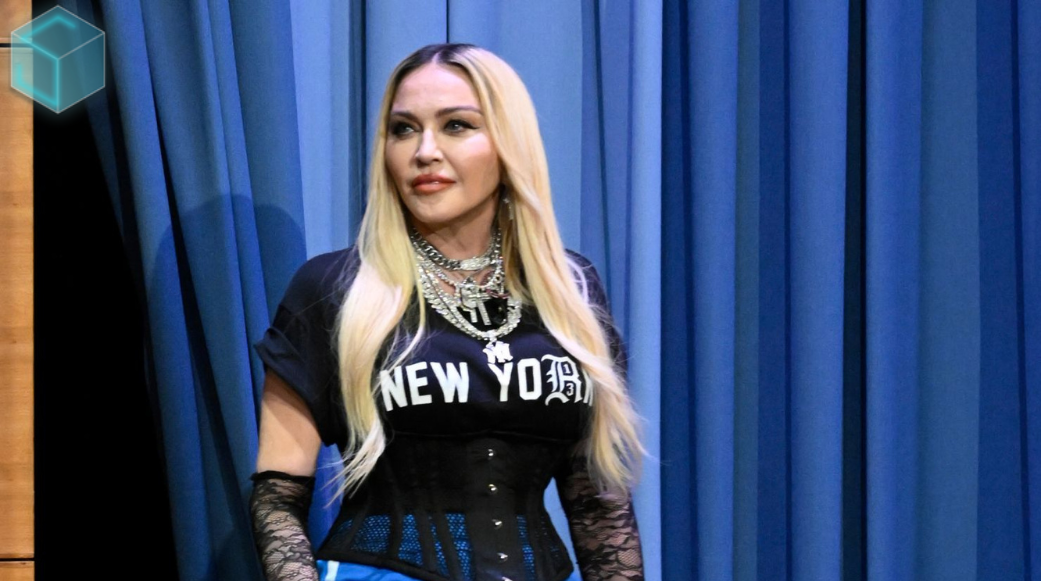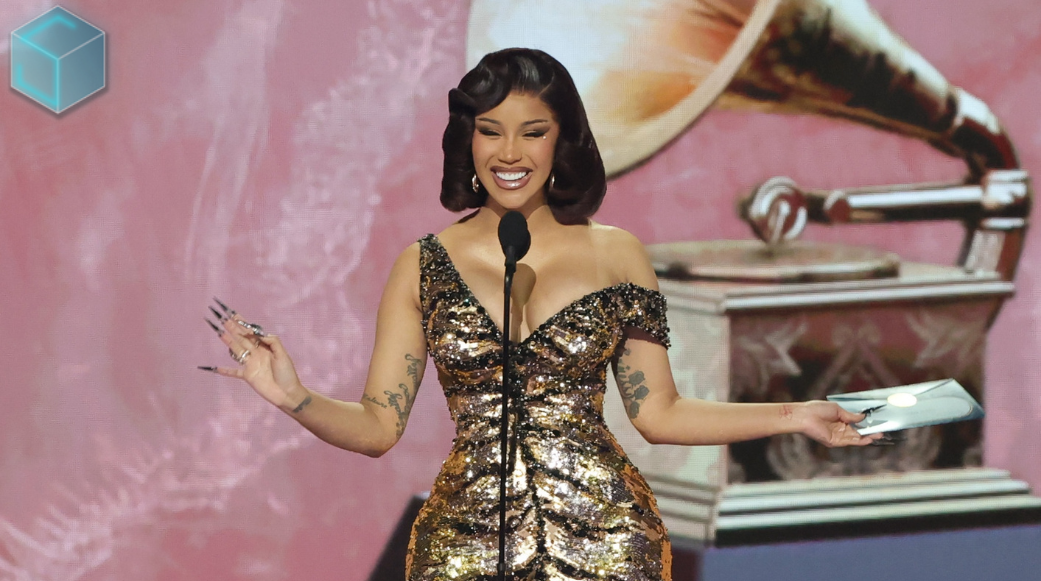
August 21, 2025
Cardi B is officially back in album mode. On Friday, the rap superstar released her new single “Imaginary Playerz,” a bold track that samples Jay-Z’s classic “Imaginary Player.” The release comes...
Read more
August 21, 2025
Gary Oldman opened up about his decades-long friendship with the late David Bowie, calling the world a very different place since the music icon’s death in January 2016. In a heartfelt interview...
Read more
August 21, 2025
The Queen of Pop just proved she's still the ultimate trendsetter even when it comes to birthday cakes. Madonna rang in her 67th birthday with a luxurious Italian getaway capped off by an enormous...
Read more
August 20, 2025
Former Little Mix star Jade Thirlwall isn't mincing words about artists who avoid political engagement, specifically calling out The 1975's Matty Healy for what she sees as a privileged stance. In...
Read more
August 20, 2025
PinkPantheress has once again cracked the code of Gen Z’s collective brain chemistry with her track Illegal. It’s short, it’s addictive, and it’s the kind of song that makes you feel like you’re...
Read more
August 20, 2025
Conan Gray has never been shy about writing songs that feel like reading your high school diary at 2 a.m. with the lights off. But with Caramel, he’s gone full Willy Wonka heartbreak mode. It’s...
Read more
August 20, 2025
PinkPantheress has always had a gift for making music that feels like it was recorded inside your daydreams, half diary entry, half late-night Tumblr scroll. With Romeo, she’s taken that talent and...
Read more
August 20, 2025
Every so often, a song arrives that feels less like a single and more like a cinematic event. LISA’s latest release, DREAM featuring Japanese actor and heartthrob Kentaro Sakaguchi, is exactly that...
Read more
August 20, 2025
If Cardi B has taught us anything, it’s that she doesn’t just rap, she throws down verbal haymakers wrapped in couture and glitter. Her new joint, “Imaginary Playerz,” is a full-on drag session for...
Read more
August 20, 2025
Everyone’s favorite pop-punkers, Joyce Manor, are back with their first new song in three years. The surprise single, “All My Friends Are So Depressed,” is out now via Epitaph Records, blending...
Read more
August 20, 2025
In 2025, Christian culture is prevalent, although it was previously on the outside of popular music. The Billboard Hot 100 is dominated by religious-themed songs like Benson Boone's...
Read more
August 20, 2025
Michael Tait, a well-known Christian rock musician (DC Talk, Newsboys), has admitted to engaging in "unwanted sensual" behavior and substance misuse for decades. Multiple accusers allege abuse...
Read more.png)
Billie Marten, the British singer-songwriter known for her hauntingly beautiful folk-inspired music, has recently shared her thoughts on the financial struggles many artists face in today’s music industry. In a candid interview, Marten revealed that while superstars like Taylor Swift rake in massive revenue from streaming and album sales, the majority of musicians are dealing with financial ruin.
In her interview, Marten discussed the significant disparities within the music industry, pointing out how the vast majority of musicians are unable to earn a sustainable income from their work. Despite the global popularity of platforms like Spotify and Apple Music, the revenue they generate for most artists is minimal at best. Marten expressed her frustration with the industry’s financial structure, which she believes benefits a select few while leaving many talented musicians struggling to make ends meet.
"Most artists are in financial ruin," Marten said. "We’re all paying Taylor Swift. These streaming services pay her so much, and she deserves it, but I think it highlights just how broken the system is for the rest of us." Marten’s comments reflect the broader issues many emerging and mid-level artists face, as the current streaming model provides only a tiny fraction of a penny per play.
Marten’s remarks on Taylor Swift’s dominance in the industry aren’t meant to diminish Swift’s success but rather to point out the stark contrast between what top-tier artists like Swift can earn compared to independent or lesser-known musicians. Swift, who has a massive global fanbase and a successful touring career, has been one of the few artists able to thrive under the current streaming model, securing lucrative deals and partnerships that contribute significantly to her earnings.
Swift's success has also led to higher payouts for her and other big names in the industry. As a result, it’s led to greater visibility for her work, including exclusive deals with streaming platforms and record-breaking sales. However, for many other artists, these opportunities are out of reach, leaving them struggling to survive financially.
For emerging artists like Marten, the financial model often seems unsustainable. Despite releasing critically acclaimed music and maintaining a loyal fanbase, Marten, like many others, has seen little financial reward for her efforts. Live performances, merchandise sales, and brand partnerships often serve as the primary income streams for many artists, but even those can be inconsistent.
Marten pointed out the paradox of the modern music industry, where visibility and talent often don’t translate into fair compensation. “It’s not about being good anymore. It’s about how many people are listening to you, how much attention you can grab, and how much money can be made from you,” she added.
Marten's comments are part of a larger conversation about the need for industry reform, particularly in how streaming platforms pay artists. Critics of the current system have long argued that it’s skewed in favor of the largest platforms and record labels, leaving smaller artists to fend for themselves.
Several proposals have been floated to address these issues, such as the user-centric payment model, where royalties would be distributed more fairly based on individual listening habits rather than the current pro-rata system, where the overall revenue is shared among all artists based on total plays.
Despite the challenges, Marten remains hopeful for change. Her call for financial equity in the music industry reflects the growing sentiment among many musicians who are demanding fairer compensation for their work. As the conversation about streaming royalties and artist compensation continues to gain momentum, it’s clear that more reform is needed to create a more equitable system for all artists, not just the superstars.
Marten’s willingness to speak out about these issues is part of a larger movement among artists and industry professionals who are advocating for a shift in how the music business operates. Whether or not these calls for change will lead to tangible reforms remains to be seen, but for now, the struggle for fair compensation continues.